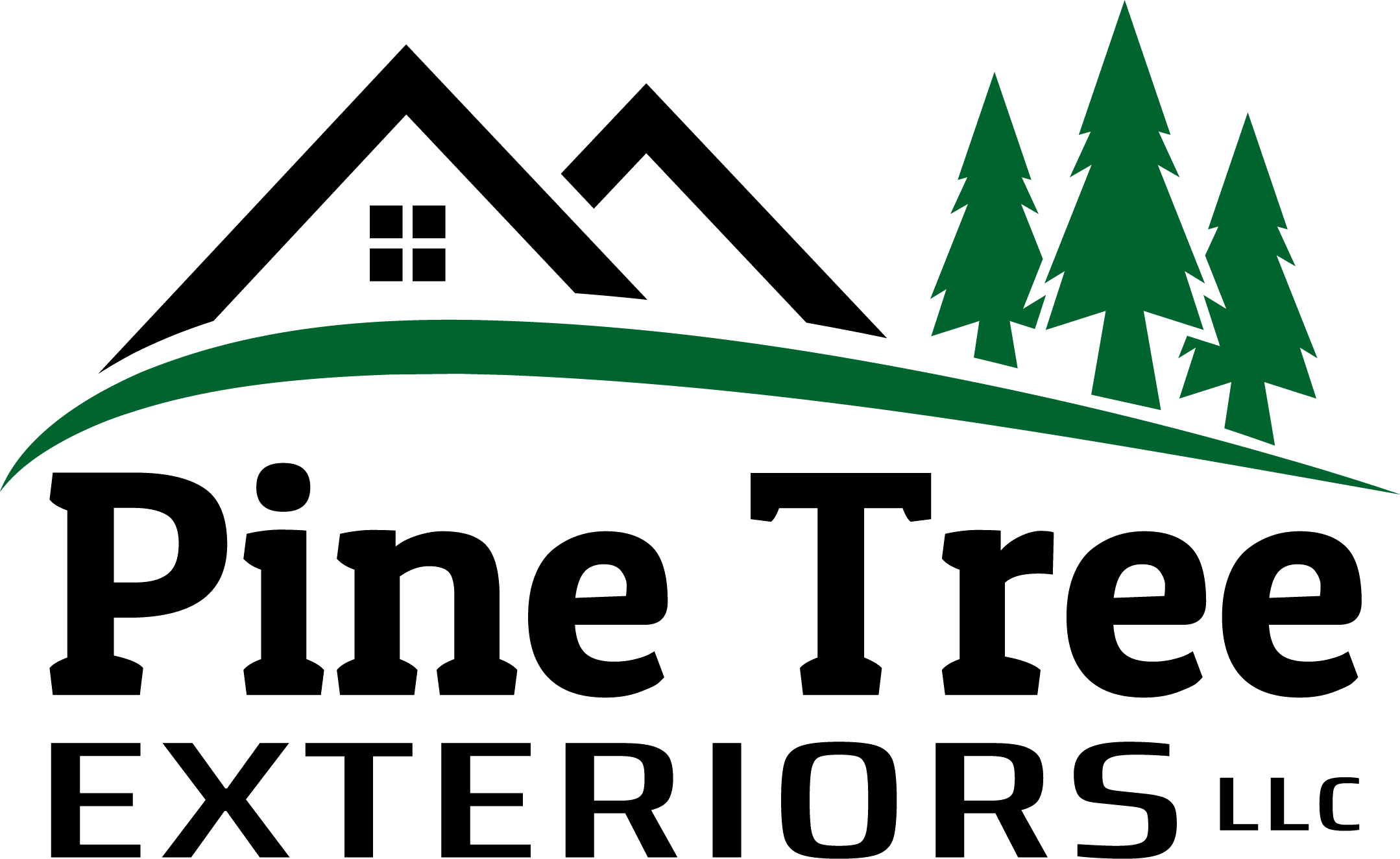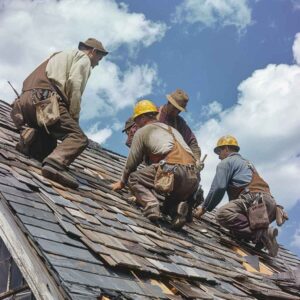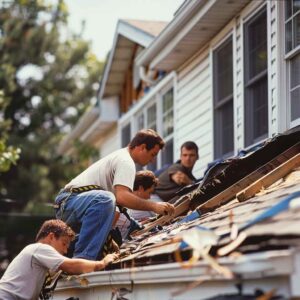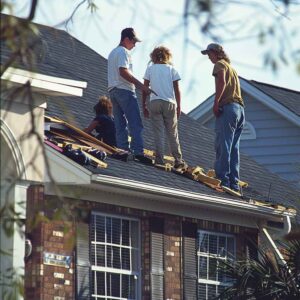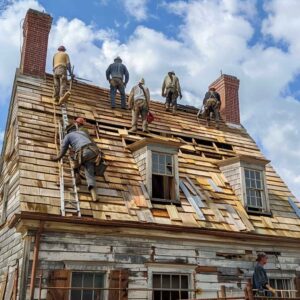As winter draws near, confirming that your roof is ready to face harsh weather conditions is imperative. It’s easy to overlook the condition of your roof once a problem arises, but by then, it may be too late. So, how can you determine if your roof is ready for winter? What signs should you be on the lookout for? In this discussion, we will explore the key indicators of roof damage, the importance of regular maintenance, practical tips for insulating your roof, the significance of clearing debris from gutters and downspouts, and the benefits of hiring a professional roof inspection. Keep the winter from catching you off guard; take the necessary steps to ensure your roof’s readiness.
Signs of Roof Damage
Several crucial indicators point to potential roof damage that should be meticulously monitored to uphold the structural integrity of your roof throughout the winter months. As winter weather conditions can exacerbate pre-existing issues, staying vigilant about roof repair is crucial. A prevalent indicator of roof damage is the appearance of water stains on the ceiling or walls, suggesting a potential leak. Furthermore, the absence or deterioration of shingles can expose your roof to potential harm from snow, ice, and wind. Cracks or curls in shingles also serve as warning signs for potential roof issues. Promptly addressing these concerns is crucial to prevent escalated damage and expensive repairs. Regular inspections and maintenance ensure your roof maintains its integrity throughout the winter.
Importance of Regular Roof Maintenance
Regular roof maintenance is crucial for ensuring the longevity and durability of your roof. Neglecting proper maintenance can lead to significant problems, especially during winter. Here are three key reasons why regular roof maintenance is essential:
1. Preventing winter roof damage: Winter weather can be harsh, with heavy snow, ice, and freezing temperatures. Regular maintenance, such as clearing snow and ice buildup, checking for leaks, and repairing damaged shingles, can help prevent costly damage caused by winter conditions.
2. Increasing roof lifespan: Regularly inspecting and maintaining your roof can catch minor issues before they become significant problems. Addressing these issues promptly can extend the lifespan of your roof, saving you money on premature replacements.
3. Enhancing energy efficiency: A diligently maintained roof featuring adequate insulation and ventilation can notably enhance energy efficiency. This translates to decreased heating expenses in winter and alleviates stress on your HVAC system.
Adopting regular roof maintenance provides various advantages, such as averting winter roof damage, extending the lifespan of your roof, and enhancing energy efficiency. Acknowledging the significance of maintaining your roof for its protection and longevity is crucial.
Tips for Insulating Your Roof
To effectively insulate your roof, it is important to follow these tips for optimal energy efficiency and protection against harsh weather conditions:
- Ensure proper roof ventilation by installing vents or fans to allow for air circulation. Good ventilation prevents moisture buildup, which can lead to mold and rot.
- Consider adding insulation material such as fiberglass or spray foam to the attic space. Establishing a barrier to thwart heat loss in winter and heat gain in summer is essential for enhancing energy efficiency.
- Sealing any gaps or cracks in the roof is crucial to prevent air leakage.
- Contemplate the installation of a radiant barrier, effectively reflecting heat away from the roof surface and further boosting energy efficiency.
By incorporating these recommendations, you can cultivate a well-insulated roof that sustains a comfortable indoor temperature and reduces energy costs.
Clearing Debris From Gutters and Downspouts
After ensuring proper insulation for your roof, the next step in preparing for winter is clearing debris from gutters and downspouts. Overlooking this crucial task can result in significant issues, including the development of ice dams and the potential for water damage to your home. Here are three reasons why clearing debris from gutters and downspouts is crucial:
1. Preventing Ice Dams: Accumulating debris in gutters and downspouts can obstruct the flow of melted snow and ice, forming ice dams. These dams impede efficient drainage, allowing water to infiltrate your roof, resulting in leaks and potential structural damage.
2. Protecting Against Water Damage: Removing debris from gutters and downspouts is vital to guarantee unobstructed water flow away from your roof and foundation. If debris obstructs these pathways, water overflow may occur, posing a risk of damage to your home’s exterior, foundation, and landscaping.
3. Maintaining Proper Roof Functionality: Regularly clearing debris lets your roof function optimally by adequately channeling water away from your home. This helps prevent water infiltration, mold growth, and other issues resulting from poor drainage.
Hiring a Professional Roof Inspection
Engaging the services of a roofing specialist in inspecting is essential for ensuring the longevity and functionality of your roof during the winter months. While DIY roof maintenance can help to an extent, it differs from a thorough inspection conducted by a trained professional. Hiring a professional roof inspector brings several benefits. To begin with, they possess the expertise to identify potential issues that might go unnoticed by an untrained eye. They can detect leaks, damaged shingles, or weakened areas that may lead to costly repairs if left unattended.
In summary, opting for a professional roof inspection is a prudent choice to safeguard the safety and integrity of your roof throughout the winter season.
Discover a New Look for Your Space!
📞Call for a consultation: 717-327-1745 📍Visit 340 School Lane Rd., Gap, PA 17527
